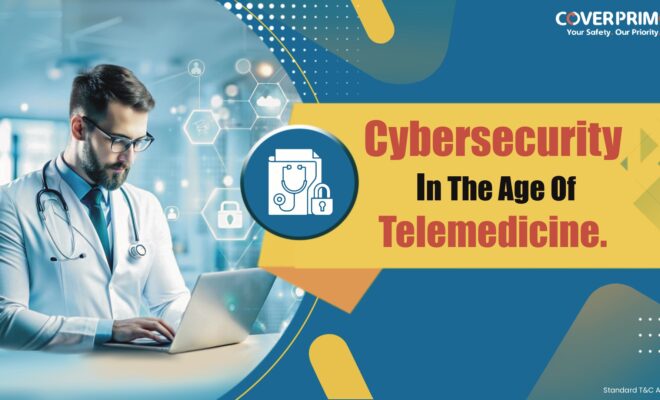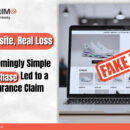Navigating the Challenges of Medical Practice Ownership: Legal Guidelines

Introduction
It is often difficult to determine when considering opening your medical practice. Opening any medical practice for the first time takes lots of effort and consideration. It is always an effective approach to find a partner as a business consultant, who is experienced and specifically aware of healthcare requirements, business operations, and the intricacy of NP Private Practice Ownership. This approach will help navigate the unknowns and upcoming challenges of a business.
Any entrepreneurship requires time, patience, passion, and money. The benefits related to independent medical practice ownership are many, and they often vary. But a few key impacts include flexibility, freedom, and achieving better outcomes for patients.
Table of Contents
- Steps & Challenges Involved in Starting your Medical Practice
- Legal Guidelines for Medical Practice Ownership
Steps & Challenges Involved in Starting your Medical Practice
-
Evaluate your Unique Individual Passion:
When you start owning a medical practice, it is necessary to consider the ideas that make your business unique, like how you will take care of the patients, and how it will be different from others. Your unique proposition will describe the foundation of your business. It will be a better idea to ask your family members, relatives, and friends, what ideas you lack, and need to improve and work on for future planning.
-
Consider Care Delivery Plans:
Considering Care Delivery Plans include the services you will offer, the delivery care, the payment options you will offer, and more. The services you will provide will be mainly centered on your training, specialty, and patient needs. It is essential to consider delivery strategies, so you can serve more patients effectively.
-
Establish a 5-Years Plan:
A business always needs the commitment to run on a long-term basis. One should look into the future and how far you can go and grow. Consider your geographic expansions like, cities, states, etc. and your expected revenue, earning, and costs. These facts will help your ownership overcome the challenges.
-
Review Scope at State Level of Practice Regulations:
It is essential to understand the state-level authority that you want to serve within a state or more than that. If you have a full scope it is obvious that there will be fewer barriers to your medical practice ownership, but if it is not the case, there is also an allowance for state-level medical practice ownership.
-
Acquire & Review State Licenses:
Certification is one of the important steps. It is the process of getting a license to credential and practice in the state. Licensing is a state-by-state process, and its requirements are different for each state. You must be certified by a nationally recognized certification board, and need a valid proof of your graduation and education from a nursing board.
-
Upgrade CAQH Account:
You must ensure that you can access your CAQH (Council for Affordable Quality Healthcare) account, and all the necessary documents within this should be up-to-date. It includes up-to-date certification, attestations, licenses, and so on.
-
Obtain Tax ID Number:
A Tax ID Number is important to pay taxes, secure a group NPI, hire employees, and open business banking accounts.
-
Obtain Group NPI:
You need your own NPI (National Provider Identifier), as a provider. The group NPI helps you set your practice up for long-term growth, and enables you to start credentialing with a federal and commercial payer.
-
Obtain CLIA Waiver:
CLIA is an acronym for Clinical Laboratory Improvement Amendments. It is an application that supports your practice to create additional opportunities, and improve patient care.
-
Advance your Business Plan:
Advancing and developing your business plans includes several terms, namely executive summary, company overview, market analysis, marketing strategies, products and services, organization and management, and financials.
Legal Guidelines for Medical Practice Ownership
-
Start Credentialing:
Credentialing takes a few months to complete. Residency, medical education, and proof of malpractice insurance are the documents that are needed for credentialing.
-
Acquire Licensing:
Licensing can be done through National Provider Identifier, DEA registration, and state licensing. Additional certificates include CLIA, state health department certification, etc.
-
Business Structure for Tax Purposes:
The tax purposes vary for different business structures. There are two types of business structure, namely S-Corporation, and C-Corporation.
You need to pay tax based on your personal income, from the business in the S-Corporation type. The entire business is taxed as a separate entity from the owners.
For an excellent business structure, some of the important business documentation is articles of organization, partnership agreements, and articles of incorporation.
-
Funding the Medical Practice:
As a long-term owner, a potential funding needs accountants, attorneys, computers, real estate, equipment, construction, consultant fees, office furniture, and medical record software, and other disposables like, syringes, gloves, gauze, and office supplies.
-
Setup an Organization:
For setting up an organization, one must develop an external advisory team that includes a banker, an attorney, an accountant, Information Technology Services and supports, and a practice management consultant.
The main decisions that you should make include, legal structure, office location, staffing specialties, and the services you will provide.
-
Financial Management:
For financial management, develop a financial plan that includes a cash flow statement, balance sheets, profit and loss statements, and operating the capital budgets. You must determine a CPT and codes for setting up your fees and billing. It includes a cycle management of cash flow of payments.
-
Hiring Staff:
A practice manager is your first hire, and it is highly important for the company. For hiring staff, you must develop a proper job description, salary scales, and compensation packages. You must know what questions are legally off-limits for a job interview.
-
Compliance:
For complying with regulatory requirements, you must prepare HIPAA, Stark Law, CLIA, OSHA, Anti-kickback Statutes, specialized procedures and pieces of equipment, and the requirements for your particular branch of medicine.
-
Ensure the Quality & Outcome Delivery:
Develop and manage an efficient procedure and a method of result measurement. Right types of equipment, support, and IT vendors are needed in an information technology department. Ensure electronic health records, demographic information, scheduling, billing, practice management, stand-alone application, and e-prescription.














